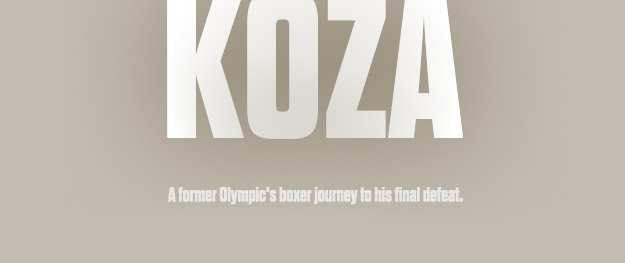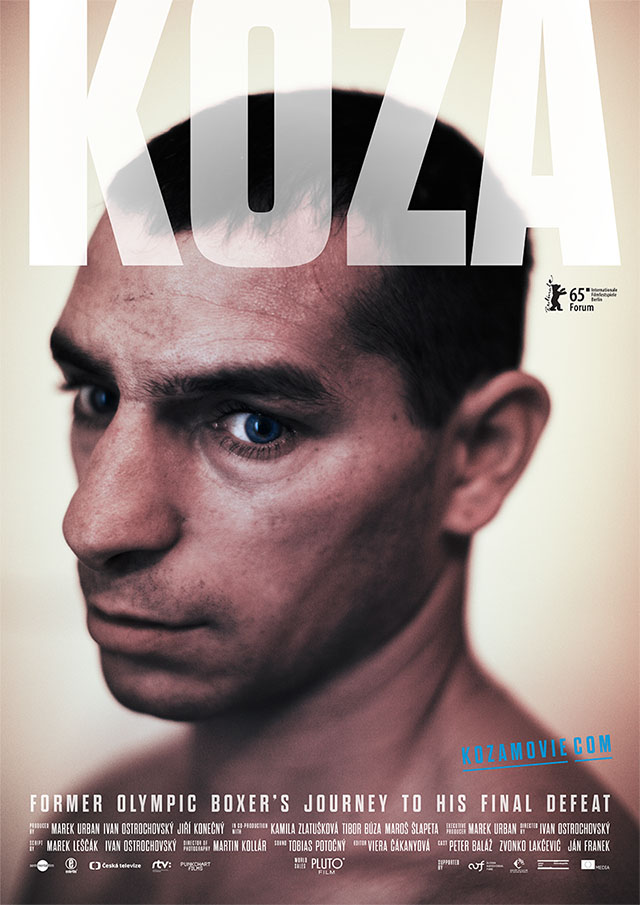IVAN OSTROCHOVSKÝ / DIRECTOR / INTERVIEW
The actors in the film are all non-professional, and most of the characters are re-enacting themselves. How did you find the main protagonists of the film? Did they bring the story with them, or were you looking for somebody that would fit your concept?
I grew up in a town called Žilina in the south of Slovakia and so did Koza. He lived down the street from where I used to live. We didn't really know each other when we were kids, but I knew about him. I knew about his boxing and when I was in first year of documentary filmmaking studies, I made a short documentary about him. Since then we were friends and I found him interesting as a character.What about the character of Zvonko? Is he really Koza's manager, did they know each other before the shooting?
No, they haven't. In fact, working with Koza, a non-professional actor, who is basically re-enacting his own life, we thought it would be better to pair him up with a professional actor. We were wrong. We did a few rehearsals, tried the chemistry, but it just didn't seem to work.The solution – as it often is in life – ended up standing right in front of us. Our friend Zvonko, with whom we've previously worked on other projects and knew from the film school, suddenly seemed like a perfect fit. We tried it and it worked beautifully!
Zvonko is not a sport manager, nor he has anything to do with box. But they completed each other with Koza so well that it seemed like was meant to be all along. Interesting fact is that unlike Koza, who understood what he's playing, because he was simply playing himself, Zvonko had to learn and develop his character. But I think he handled this task amazingly.
You previous film Velvet Terrorists is a documentary using a lot of elements and directing style known and typical for a fiction film. Why did you end up making Koza a fiction film and not a documentary?
With my co-scriptwriter Marek Leščák we discussed Koza to be a documentary for a long time. I didn't think of a fiction film at first. But as the situations when I just could capture particular moments and would have to re-enact them anyway were more and more frequent, I've decided I'll go for a special fiction film – either the protagonists were playing themselves, or we used non-professionals who would be based on their own character and a situation we've observed in his real life.So how much reality did you use then? What in the film is an is not real?
Koza really is a former Olympic boxer, living in a Gypsy ghetto, having almost no money at all. A few years ago, he and his partner Miša were expecting a third child, which they really couldn't afford. Koza called me and asked for help – he not only didn't have money to raise another kid, he couldn't even pay for the abortion, which usually costs 300 to 400 euros in Slovakia. That was the first impulse to write the script.The story, even if using real characters and inspired by real situations from Koza's life, is completely made up – Zvonko as his manager, the tour around Europe, the stops, the earning money for the abortion, the beating up, a greater part of the matches.

